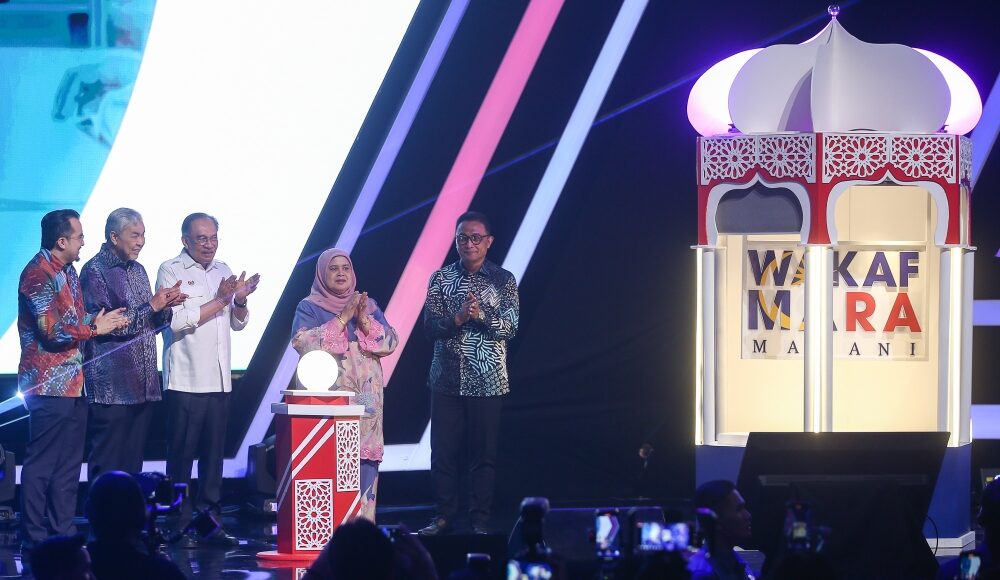JUNE 2 — Economic justice is a contentious issue in the world. Many view tariffs which discriminate between countries as stoking economic injustice. They give rise to unfair trade. There are many examples of this. The latest is the unilateral move by the US to unilaterally reconstitute their import tariffs which saw different rates for different countries on the rather illogical basis of trade deficits. The irony of it all is that US importers end up paying for the tariff hikes. Economists confirm this fact. The establishment of the WTO years ago aimed to create more fairness in trade. Initially agreements were amicably reached to zerorise tariffs. When eventually the negotiations proceeded into agriculture, the progress stalled. Most countries subsidise agriculture, especially EU and Japan.
Rooted in the principles of equity, risk-sharing, and social welfare, Islamic Social Finance (ISF) mechanisms like zakat, waqf, sadaqah, and Islamic microfinance align closely with the goals of reducing inequality. They empower marginalized communities, and foster inclusive growth. Malaysia, with its robust Islamic finance ecosystem and majority-Muslim population, is uniquely positioned to harness ISF as a catalyst for systemic economic reform. However, structural inefficiencies, fragmented governance, and a lack of innovation have limited its transformative potential. New strategies are needed to realise full potential.
Malaysia has already made strides in institutionalizing ISF. Managed by state religious authorities, zakat collection reached RM4.5 billion (US$1 billion) in 2022, primarily redistributed to the poor. In Waqf, Malaysia has over 11,000 hectares of waqf land, though much remains underdeveloped. On Sukuk, socially responsible sukuk, like the World’s First Sustainable and Responsible Investment (SRI) Sukuk (2015), fund green projects and affordable housing. Despite these efforts, challenges persist. Fragmented governance is one. Zakat and waqf are managed separately by state-level entities, leading to inefficiencies and uneven impact. Only 15 per cent of waqf land is productively developed, often due to bureaucratic hurdles or lack of expertise. Many ISF tools remain siloed in traditional models, with minimal integration of fintech or cross-sector partnerships.
Awareness gaps are real. Rural and non-Muslim communities often lack understanding of ISF’s benefits, perpetuating exclusion. How to transform ISF into a true “engine” for economic justice? The popular view is that Malaysia must adopt a holistic strategy. One is to centralize and modernize governance. Establish a National Islamic Social Finance Authority to harmonize zakat/waqf management across states, setting transparent accountability standards, and streamlining redistribution. Next is to digitize collection and distribution through platforms and blockchain instruments to enhance transparency, reduce leakage, and expand donor participation.
Many call to innovate the waqf models. Ideas include to develop cash waqf and corporate waqf to diversify funding. Partner with private developers to transform idle waqf land into affordable housing, agro-industrial hubs, or renewable solar energy projects. Replicate success stories like Waqaf An-Nur Hospital, a crowdfunded healthcare facility serving low-income communities. Integrate ISF with national development agendas including SDGs. Increase the use of zakat to fund scholarships, vocational training, and grants for asnaf youth. Issue social impact sukuk to finance climate-resilient infrastructure in flood-prone states like Kelantan. Leverage ISF to address urban-rural divides by funding microfinance for rural entrepreneurs, particularly women.
Public-Private Partnerships (PPPs) should be promoted. Encourage banks like Maybank Islamic and CIMB Islamic to design ISF-linked products such as zakat-based insurance for low-income families. Partner with NGOs to target hard-to-reach communities and address also non-Muslim poverty by channeling sadaqah to multicultural education programs. Promote financial literacy and inclusivity. Launch nationwide campaigns to educate Malaysians, muslims and non-muslims, on ISF’s role in economic justice. Develop mobile apps gamifying sadaqah contributions or linking zakat payments to tangible outcomes. For example, adopt a Student via zakat for education.
Position Malaysia as a global ISF hub by sharing best practices with OIC countries. Host an annual Global Islamic Social Finance Summit to attract investments and foster innovations like AI-driven zakat allocation systems. By framing ISF as part of Malaysia’s broader commitment to social welfare, for example using waqf to build schools serving all ethnicities, ISF can transcend religious boundaries. That is a powerful dakwah instrument to promote unity. Conventional welfare programs often face funding shortfalls and bureaucratic delays. ISF’s faith-based nature can mobilize additional resources and foster community ownership.
There is no denying that ISF is not merely a religious obligation but a pragmatic, ethical, and scalable solution to Malaysia’s entrenched inequalities. By modernizing governance, innovating financial instruments, and prioritizing inclusivity, Malaysia under the MADANI administration can effectively unlock ISF’s potential to become a global model for economic justice. The path forward requires political will, cross-sector collaboration, and a reimagining of finance as a force for collective dignity, not just profit. Malaysia can ignite this potential.
* Professor Datuk Dr Ahmad Ibrahim is affiliated with the Tan Sri Omar Centre for STI Policy Studies at UCSI University and is an associate fellow at the Ungku Aziz Centre for Development Studies, Universiti Malaya. He can be reached at [email protected].
** This is the personal opinion of the writer or publication and does not necessarily represent the views of Malay Mail.





